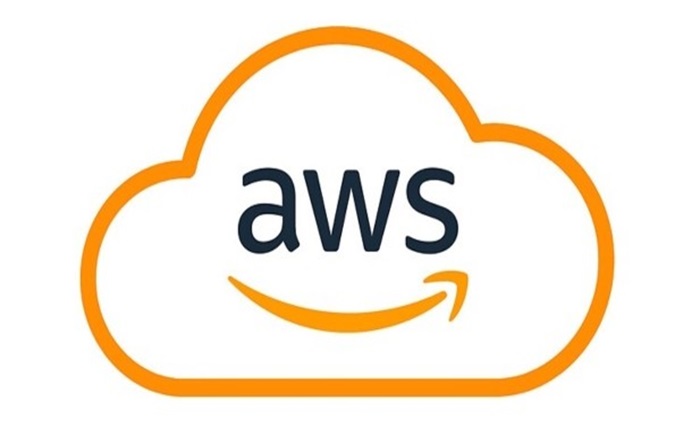Welcome to the fascinating world of blockchain technology, where cutting-edge solutions are reshaping the way transactions will be conducted in the future. Blockchain is no more simply a trendy term; it is a disruptive force that is revolutionising several industries, including finance. The potential uses for blockchain technology, which range from cryptocurrency to smart contracts, are countless and interesting.
So, what exactly is a blockchain? Simply said, a blockchain is a decentralised digital ledger that securely and openly records transactions. Blockchain facilitates peer-to-peer transactions without the need for an intermediary, in contrast to traditional financial systems that depend on intermediaries like banks to process transactions. Transactions become quicker and more effective as a result, which also lowers costs and lowers the possibility of fraud and human error.
We shall examine the application of blockchain technology in transactions in the USA in more detail in this post. We will look at the benefits of utilising blockchain technology, potential innovations for transactions, implementation issues, and the regulatory environment for blockchain technology in the USA. So saddle up for a wild voyage into the world of blockchain and its influence on how transactions will be conducted in the future.
US adoption of blockchain technology
With many businesses and sectors embracing blockchain-based solutions to enhance their operations, the USA has been at the forefront of blockchain technology adoption. Particularly the financial sector has embraced blockchain quickly, with big organisations like JPMorgan, Goldman Sachs, and Nasdaq looking into its potential applications.
Supply chain management, healthcare, and real estate are some other sectors in the USA that have embraced blockchain technology. For instance, Walmart uses blockchain to track the product supply chain, and the healthcare sector is looking into using it to share patient data in a safe manner. Blockchain is also being used by real estate firms to speed up property transactions and lower fraud.
In general, blockchain technology acceptance in the USA is increasing, and in the years to come, we can anticipate more businesses and industries to begin investigating its potential.
Blockchain Technology’s Benefits for Transactions
Enhanced security and efficiency are two of the greatest benefits of employing blockchain technology for transactions in the USA. Due to the decentralised and encrypted nature of blockchain, it is practically difficult for hackers to alter the data, guaranteeing the security and transparency of transactions. Additionally, the absence of intermediaries lowers transaction costs and accelerates the process.
The digital currency exchange Coinbase, which utilises blockchain to securely store and transfer bitcoins, as well as the shipping company UPS, which uses blockchain to track and authenticate parcels, are two examples of real-world examples of successful blockchain-based transactions in the USA. Another illustration is the use of blockchain technology by the state of Wyoming to enhance the effectiveness and transparency of its electoral process.
Overall, there are many benefits to employing blockchain technology for transactions in the USA, and as businesses and sectors look for ways to enhance their processes and stay competitive, we can anticipate seeing this technology used more frequently.
Potential Blockchain Developments for American Transactions
With a number of new blockchain advancements that promise to increase transaction security, efficiency, and transparency, blockchain technology has the potential to revolutionise business transactions in the USA. Utilising blockchain-based solutions for cross-border transactions is one such innovation that could cut down on the costs and processing times associated with such transactions.
Another area where blockchain technology may have a big influence is in smart contracts, which automate contractual agreements and do away with the need for middlemen. Blockchain technology has the potential to enhance traceability and transparency in supply chain management, enabling businesses to follow things from their point of origin to their final destination.
The IBM blockchain-based cross-border payments platform, the Visa blockchain-based B2B payments solution, and the Walmart blockchain-based food supply chain system are three real-world examples of blockchain-based solutions in the USA.
Overall, there are a lot of blockchain-related technologies that might be used for transactions in the USA, and as businesses and other sectors continue to investigate this technology’s possibilities, we can anticipate seeing further advancements in this field.
Implementing Blockchain Technology for Transactions: Challenges
Although blockchain technology has many benefits for transactions in the USA, its implementation is not without its difficulties. The intricacy of the technology itself, which necessitates specialised knowledge and resources to develop and maintain, is one of the largest hurdles.
Regulatory ambiguity is another issue because the legal system governing blockchain technology is constantly developing. For businesses and sectors looking to use blockchain-based solutions, this may present challenges.
Investing in education and training programmes to develop the necessary skills and expertise, collaborating with regulators to create a legal environment that is supportive of blockchain technology, and working with partners and stakeholders to develop industry standards and best practises are all potential solutions to these problems.
Overall, while using blockchain technology for transactions in the USA has its difficulties, there are also potential solutions. As a result, we may anticipate continuous development and acceptance of this technology in the years to come.
The US Regulatory Environment for Blockchain Technology
The US regulatory environment for blockchain technology is complicated and continuously changing. Despite the fact that the technology is still in its infancy, a number of laws currently apply to blockchain-based transactions, particularly in the financial industry.
For instance, the Commodity Futures Trading Commission (CFTC) has classified cryptocurrencies as commodities and is working to establish regulations for blockchain-based derivatives. The Securities and Exchange Commission (SEC) has issued guidelines on the use of blockchain technology in initial coin offerings (ICOs).
Future updates and modifications to legislation are expected to have an effect on how transactions utilising blockchain technology will be conducted. Data privacy and security is one area of emphasis, and regulators are anticipated to introduce stricter rules for the protection of personal data in blockchain-based transactions.
In general, the regulatory environment in the USA for blockchain technology is complex yet changing, and businesses and industries will need to keep up with these developments to ensure compliance and sustained growth.
Conclusion
The use of blockchain technology in the USA has the potential to transform business operations in a variety of sectors, including supply chain management and financial services. Increased security, effectiveness, and transparency are benefits of utilising blockchain technology for transactions, and actual instances show how this technology has the ability to revolutionise the way transactions are carried out.
Implementing blockchain technology is not without its difficulties, though, such as complexity and regulatory ambiguity. In order to build industry standards and best practises and solve these difficulties, businesses and industries will need to make investments in educational and training programmes, interact with regulators, and collaborate with partners and stakeholders.
The future of transactions utilising this technology is projected to be impacted by potential modifications and upgrades to the regulatory environment for blockchain technology in the USA, which is currently growing quickly. Despite these difficulties, the use of blockchain technology in transactions in the USA has a bright future ahead of it, with the possibility of further expansion, inventiveness, and revolutionary transformation.
Read More You May Like:














Post Comment